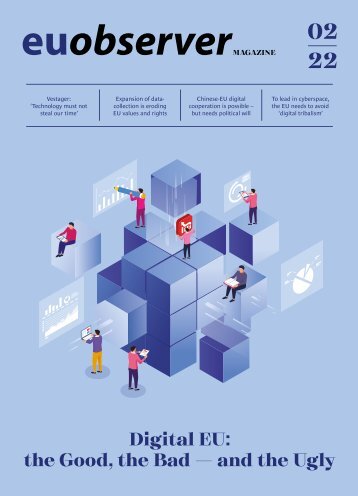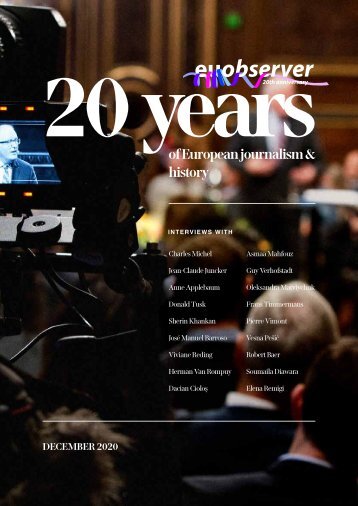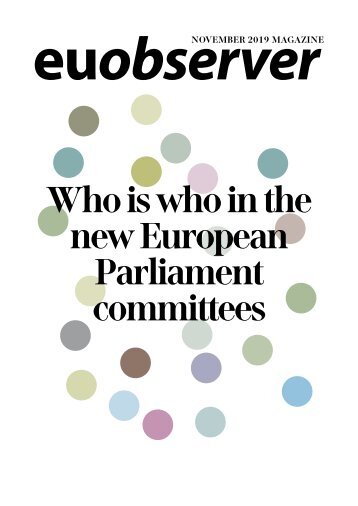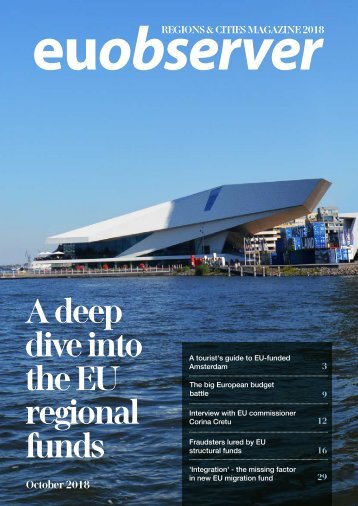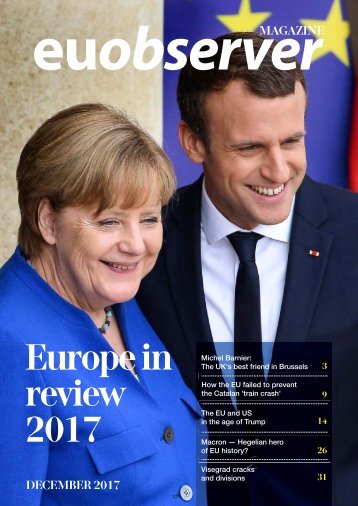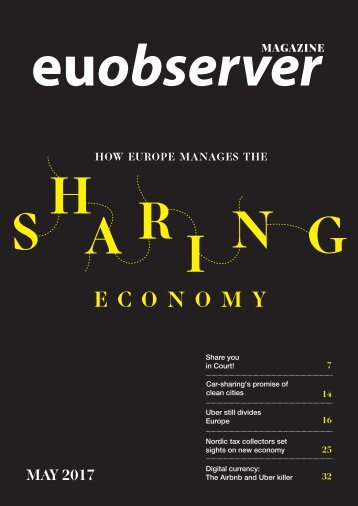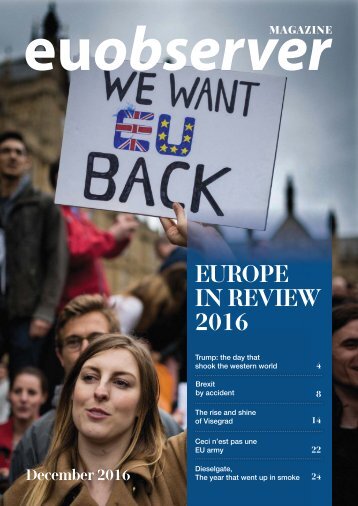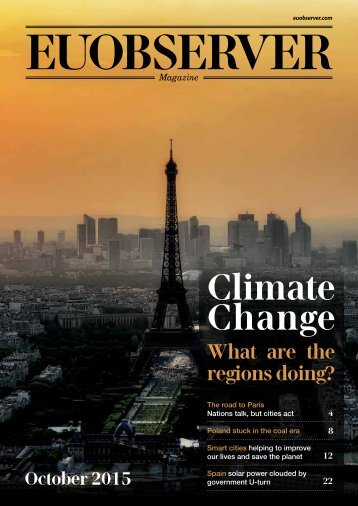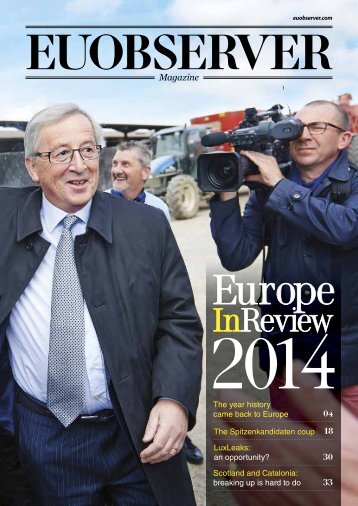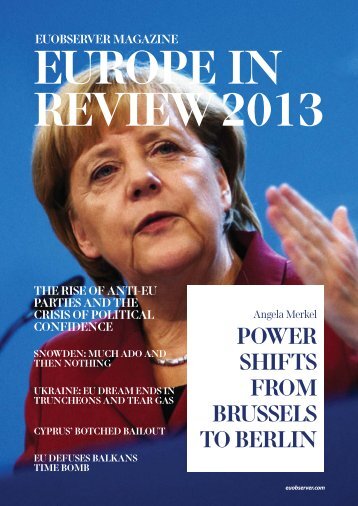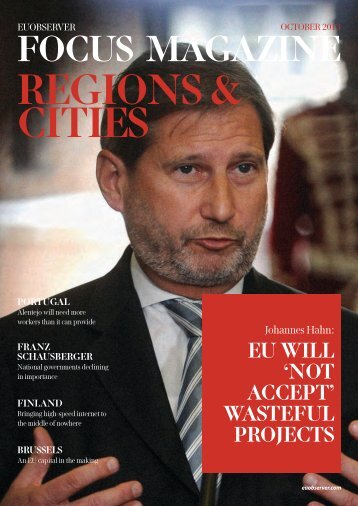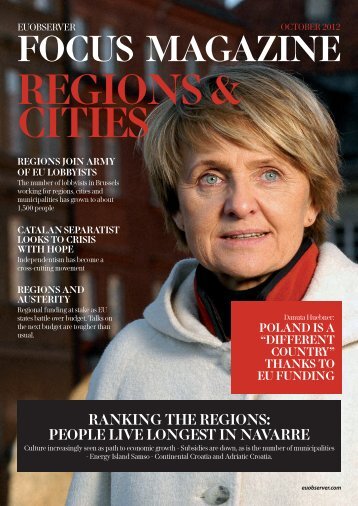Digital EU: the Good, the Bad — and the Ugly
- Text
- Strategic
- Cooperation
- Technologies
- Economy
- Innovation
- Asean
- Artificial
- Global
- European
- Digital
DIGITAL INNOVATION
DIGITAL INNOVATION ‘DIGITAL EU’: THE GOOD, THE BAD & THE UGLY The outdated myths and exciting reality of ‘Digital Africa’ A look at the history of the digital transformation taking place in Africa proves that the continent is certainly not backward. Africa has always been progressive and is currently in the midst of an exciting and disruptive digital revolution. By Dr. ADEYINKA ADEWALE Africa is in the midst of an ongoing digital revolution which is exciting, different and disruptive. It is different because the change is happening in a unique context with unique nuances; it is disruptive because it demands that Africans and the rest of world adopt new ways of thinking and doing things. A look at the history of the digital transformation taking place in Africa proves that the continent is certainly not backward. Africa has always been progressive, a fact proven by accurate rather than false narratives about her pre-colonial past. More recently, African countries have been among the early adopters of the internet. The 1990s marked the beginning of the first era of digital revolution on the continent, which can be dubbed the “infrastructure era”. Internet service providers got licensed in many African nations and the internet became publicly accessible. Between 2000 and 2010, the “knowledge era” unfolded, powered by the proliferation of internet cafes, a popular business venture. This period opened up new horizons for young entrepreneurs who began to dare to do things in new ways. This soon ushered in the “skills era”. As the number of tech businesses soared on the continent, gaps in the requisite digital skills needed to power these businesses became obvious – and remain an ongoing challenge. These eras are not mutually exclusive and have become more sophisticated over time. The internet is now more mobile than it has ever been, with 570 million internet users across the continent in 2022, representing about half of Africa’s population. Projections suggest a 25-percent increase by 2030. Online education has made the knowledge era more refined, with young Africans producing their own content whilst also consuming material from other parts of the globe. The digital skills challenge has also birthed tech hubs, training academies and other multi-stakeholder interventions. Each era has often attracted massive investment opportunities — despite the challenges on the continent. The jump in venture capital investment in Africa from 0m [€481m] in 2016 to .2bn in 2021 is not a mere coincidence, it has been brewing for years. As far back as 2012, Foreign Direct Investment (FDI) had eclipsed Official Development Assistance (ODA) in 17 African countries. By 2014, FDI flow into Africa was double ODA flow. The message is clear: Africa is no longer the beggarly, needy continent, dependent on aid. The continent is ready for trade and investment. Approaching the ongoing digital revolution with a neo-colonial aid mindset would be a calamitous mistake. An internet café in Ghana, during Covid While we must also be cautious not to over-romanticise Africa’s prospects — as there are legitimate worries around political, economic, and fiscal instability — there are always risks associated with doing business in any context. After all, Europe too has shown some disturbing signs of fragility. Venture capital inflow into Africa is one sign that investors are willing to take a risk on a continent that offers about a 2.7-percent return on investments. This may be low relative to other contexts but this will improve with time not because of sheer optimism but because of encouraging and positive emerging trends. African youths are harnessing the opportunities afforded by the digital revolution to engage in high-impact entrepreneurial activities and are creating digital services and solutions tailored to address myriads of challenges on the continent. This has driven an unusually high volume of entrepreneurship activities across Africa. Technology is seen as a ‘silver bullet’, with almost every major sector having a sub-sector under the tech appendage – Fintech, Edtech, Medtech, Civictech and the like. The challenge is translating this quantity into quality. Venture capital investment in Africa jumped from 0m [€481m] in 2016 to .2bn in 2021.” Adeyinka Adewale Fintech is currently the most lucrative sector, attracting the highest volume of venture capital, and producing the highest number of ‘unicorns’ (start-ups valued at bn or over before being listed on the stock exchange). The goal is not to necessarily create more unicorns, but to build sustainable businesses of the future. There are other sectors calling for similar attention, which could create more success stories. As it is said in Africa, it takes a village to raise a child. What Africa needs most at this juncture is understanding and the right partnerships including local and foreign investors, key innovation and entrepreneurship ecosystem stakeholders, all coming together to co-create change and co-facilitate support systems for African tech start-ups. This is already happening at an incredibly fast pace. Europeans with their neo-colonial mindset may not be able to grasp these realities but the writing is on the wall: Africa’s digital revolution is changing the continent in myriad ways. European digital investors are welcome but they must be ready to accept the high-tech reality of Digital Africa. About Dr. Adeyinka Adewale Associate professor of leadership ethics and entrepreneurship, deputy director of studies at Henley Business School 31
- Page 1 and 2: MAGAZINE 02 22 Vestager: ‘Technol
- Page 4: TABLE OF CONTENTS ‘DIGITAL EU’:
- Page 8: DIGITAL INNOVATION ‘DIGITAL EU’
- Page 12: ‘DIGITAL EU’: THE GOOD, THE BAD
- Page 16: DIGITAL INNOVATION ‘DIGITAL EU’
- Page 20: DIGITAL INNOVATION ‘DIGITAL EU’
- Page 24: DIGITAL INNOVATION EU data protecti
- Page 28: DIGITAL INNOVATION Spyware scandals
- Page 34: DIGITAL INNOVATION ‘DIGITAL EU’
- Page 38: DIGITAL INNOVATION ‘DIGITAL EU’
- Page 42: DIGITAL INNOVATION ‘DIGITAL EU’
- Page 46: ‘DIGITAL EU’: THE GOOD, THE BAD
- Page 50: An A-Z glossary of digital and tech
Inappropriate
Loading...
Mail this publication
Loading...
Embed
Loading...


